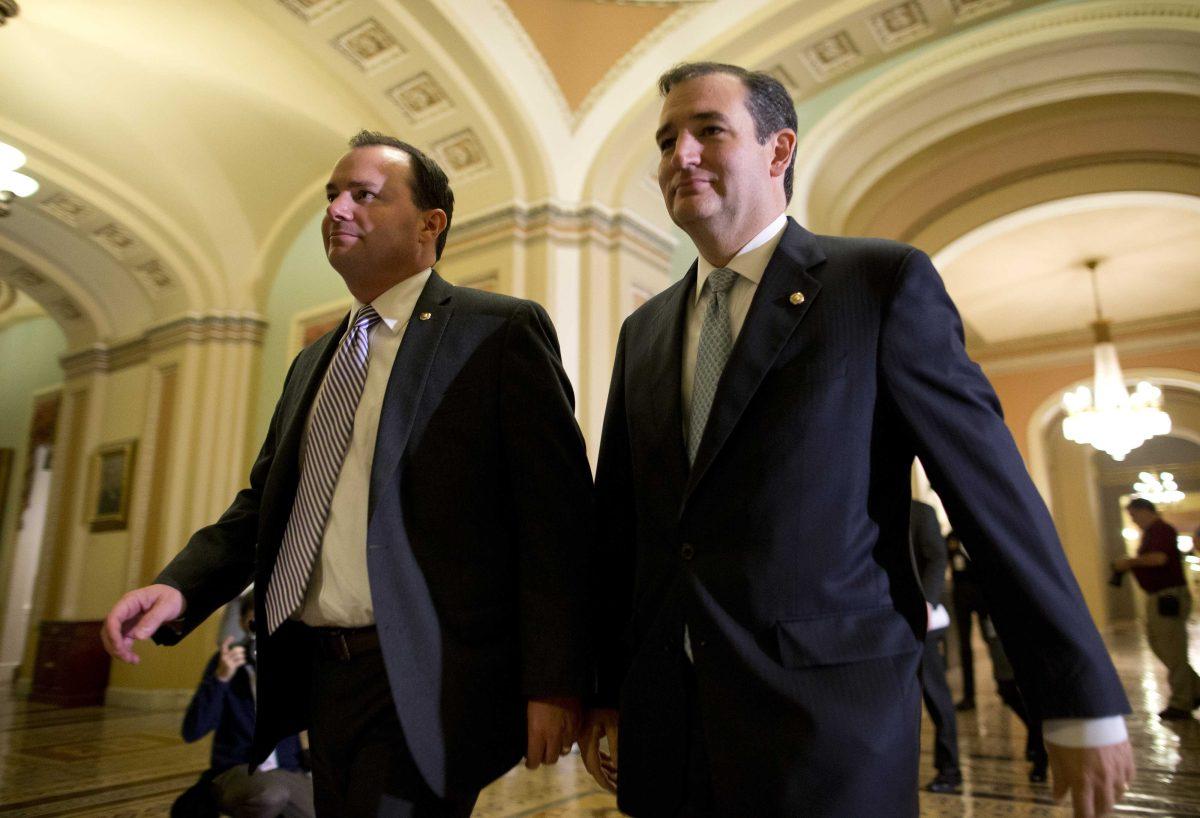Last week, the government finally reopened after its 16-day hiatus, and the U.S. also avoided an economically calamitous threat of a default on its debt.
Unfortunately, though, these battles are far from over.
For one, Congress merely kicked the can down the road by voting on a temporary fix to fund the federal government through Jan. 15 and extend the Treasury Department’s borrowing authority to Feb. 7.
In other words, we could find ourselves going through the exact same situation in a few months.
Many in the Republican Party, such as Senate minority leader Mitch McConnell of Kentucky, claim there will be no further brinksmanship over funding the government or raising the debt ceiling, as it would be politically disastrous to make such moves once again.
Nothing could be further from the truth, except the part about hostage-taking being politically disastrous for the GOP.
Call me a cynic, but House Republicans were insane enough to provoke this past crisis, so why assume they have suddenly learned their lesson?
Looking beyond this, however, it’s important to understand how economically destructive the circus in Washington really is. From extortion to obstruction, politicians are constantly ginning up fear and uncertainty, which is having overwhelmingly negative effects on our economy.
But don’t take it from me, listen to what the experts have to say in a new report issued by the consulting firm Macroeconomic Advisers.
In its report, Macroeconomic Advisers estimates that since 2010, “crisis-driven” fiscal policy in Washington has subtracted about 1 percent off of the U.S. growth rate for the past three years.
Put in more concrete terms, the value of goods and services that America could and should have produced — but didn’t — was around $700 billion.
In addition, the firm estimated that unemployment is 1.4 percentage points higher than it would have been had political confrontation been nonexistent for the past three years.
Basically, had there been no sequester, fiscal cliff, government shutdown or two near defaults on the national debt, we’d have millions more people working and spending money, thus stimulating the economy.
It doesn’t take an economist or financial expert to figure this out. The massive amounts of political brinksmanship over the past few years, especially on budget issues, has sowed a great deal of uncertainty.
Measures of consumer confidence dropped during the government shutdown, and, with another potential fight over funding the government months ahead, it is unlikely to rebound anytime soon.
In other words, consumers — people like you and I — on average feel more pessimistic about our future wealth prospects, which means we will cut back on how much we spend.
Measures of how much businesses are investing in things like factories, structures and equipment also fell precipitously as a result of our nation’s crisis driven policy.
Indeed, thinking about American politics from a firm’s perspective is actually pretty scary: if the U.S. were to default on its debt, yields on Treasury Notes would undoubtedly spike, which means interest rates — the cost of borrowing money — would skyrocket, severely discouraging firms from investing in new factories or hiring new workers.
Things could be worse. We could have actually defaulted on our debt last week and be nearing double-digit unemployment this week.
But we didn’t, and we’re not. The main point is that we need politicians to get back to the business of governing, and out of the business of creating economic uncertainty.
Jay Meyers is a 20-year-old economics junior from Shreveport.
Opinion: Congress’ crisis-driven policy causing economic damage
By Jay Meyers
October 21, 2013
In this Oct. 16, 2013, photo, Sen. Mike Lee, R-Utah, left, and Sen. Ted Cruz, R-Texas, walk to the Senate floor to vote on a bill to raise the debt ceiling and fund the government on Capitol Hill in Washington. The budget-debt brawl has widened the rift between the Grand Old Party and tea party lawmakers who are upset that House Speaker John Boehner and Senate Republican Leader Mitch McConnell agreed to the plan to reopen government without extracting any limits on President Barack Obama’s health care law.(AP Photo/ Evan Vucci)








